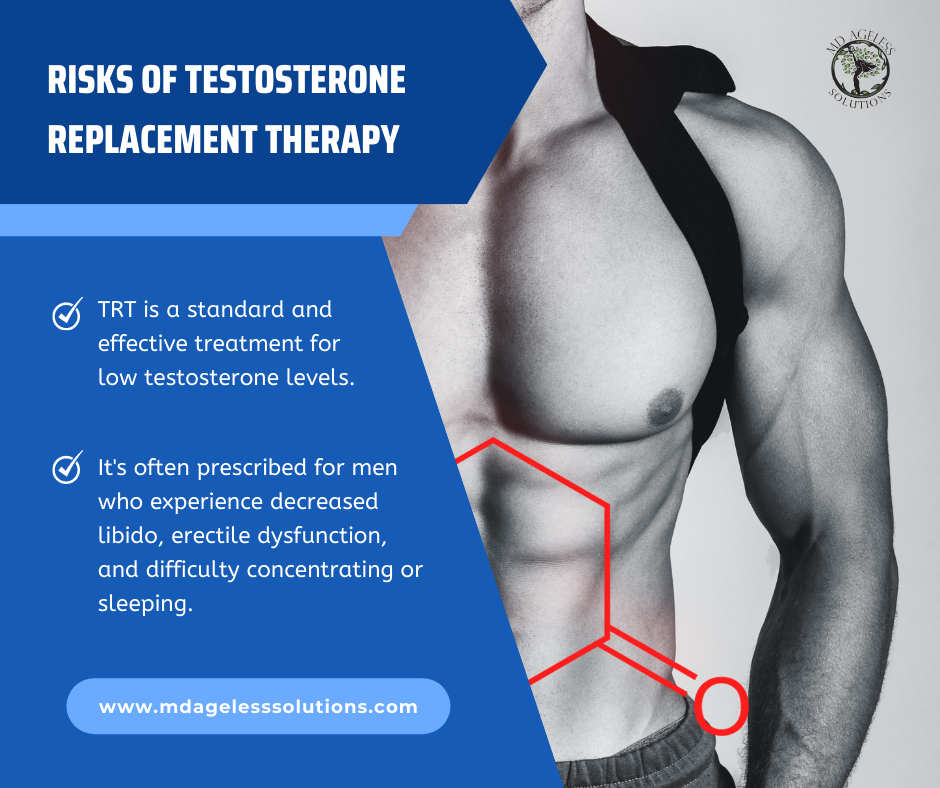Testosterone Therapy: The Pros and Cons of Seeking Treatment

The Potential Benefits of Testosterone Therapy

Testosterone therapy, also known as androgen replacement therapy, has gained popularity as an option for individuals with low testosterone levels. This treatment aims to increase testosterone levels in the body, offering potential benefits for various conditions. One potential benefit of testosterone therapy is an improvement in muscle mass and strength. Studies have shown that testosterone replacement can lead to an increase in lean body mass and a decrease in fat mass, particularly when combined with resistance training. This can have significant implications for individuals looking to improve their physical performance or enhance their physical appearance.
Another potential benefit of testosterone therapy is an improvement in sexual function. Testosterone plays a crucial role in maintaining sexual health in both men and women. Low testosterone levels can contribute to a decrease in libido, erectile dysfunction, and overall sexual satisfaction. Research suggests that testosterone therapy can help improve sexual desire, erectile function, and overall sexual well-being. However, it is important to note that the effectiveness of testosterone therapy may vary depending on individual factors, and it is recommended to consult with a healthcare professional to determine the most suitable treatment option for each individual.
In addition to these benefits, testosterone therapy has also been associated with improvements in mood and cognitive function. Testosterone plays a role in regulating mood, and low levels of this hormone have been linked to symptoms of depression and fatigue. Some studies have shown that testosterone replacement therapy can lead to improvements in mood, energy levels, and cognitive function in individuals with low testosterone levels. However, further research is needed to fully understand the extent of these effects and identify the potential risks associated with long-term testosterone therapy.
It is crucial to consider that the benefits of testosterone therapy should be weighed against potential risks and side effects. It is essential to consult with a medical professional before starting testosterone therapy to ensure that it is appropriate for each individual’s specific needs and medical history. Furthermore, it is important to note that testosterone therapy may not be suitable for everyone, and alternative treatments for low testosterone should be considered. Understanding the potential benefits and risks of testosterone therapy is key to making informed decisions about this treatment option.
The Potential Risks and Side Effects of Testosterone Therapy

Testosterone therapy, like any medical intervention, comes with its fair share of potential risks and side effects. While many individuals may experience positive outcomes from this treatment, it is crucial to be aware of the potential drawbacks in order to make an informed decision.
One possible side effect of testosterone therapy is the risk of cardiovascular issues. Research suggests that long-term use of testosterone may increase the likelihood of heart-related problems such as coronary artery disease and stroke. It is important to note that this connection is still being studied, and more research is needed to fully understand the extent of this risk.
Another potential concern is the impact of testosterone therapy on fertility. Testosterone supplementation can cause a decrease in sperm production, which may result in reduced fertility or infertility. While this may not be a concern for individuals who are not planning to conceive, it is important for those who desire to have children in the future to discuss this aspect with their healthcare provider.
Moreover, testosterone therapy has been linked to an increased risk of developing prostate cancer. Research in this area is conflicting, and there is a lack of consensus among medical professionals regarding the exact relationship between testosterone therapy and prostate cancer. However, it is crucial to regularly monitor prostate health through appropriate screening measures, especially for individuals at a higher risk of developing prostate cancer, such as older individuals or those with a family history of the disease.
It is essential to remember that the risks and side effects discussed here are not exhaustive and that each individual may respond differently to testosterone therapy. Consulting with a qualified healthcare professional is crucial for a comprehensive evaluation of one’s specific situation and to determine the most appropriate course of action. Only a medical professional with an in-depth understanding of an individual’s medical history and overall health can provide personalized advice regarding potential risks and side effects.
Understanding the Role of Testosterone in the Body

Testosterone is a hormone that plays a crucial role in the development and functioning of the male reproductive system. It is primarily produced in the testicles but is also present in small amounts in females. Testosterone is responsible for the growth of the penis and testicles during puberty, as well as the development of secondary sexual characteristics such as facial and body hair, deeper voice, and muscle mass. In addition to its role in sexual development, testosterone also plays a vital role in maintaining overall health and well-being in both men and women.
One of the key functions of testosterone is its impact on bone density. It helps to maintain strong and healthy bones by stimulating the production of bone-forming cells and inhibiting their breakdown. Studies have shown that low testosterone levels are associated with reduced bone density and an increased risk of osteoporosis, particularly in older men. Testosterone also plays a role in regulating mood, cognitive function, and overall energy levels. It has been found that low levels of testosterone are associated with symptoms of fatigue, depression, and decreased motivation.
Understanding the role of testosterone in the body is crucial in order to recognize the potential impact of imbalances or deficiencies. While testosterone is often associated with male characteristics and sexuality, its effects extend far beyond that. It is essential for maintaining optimal health and well-being in both men and women, influencing various aspects of physical and mental functioning. However, it is important to note that testosterone levels naturally decline with age, and significant imbalances can have detrimental effects on health. Therefore, it is important to consult with a medical professional for proper evaluation and potential treatment options.
Conditions That May Benefit from Testosterone Therapy
Testosterone therapy has been found to be beneficial for a range of conditions related to low testosterone levels in men. One such condition is hypogonadism, a condition in which the body fails to produce adequate amounts of testosterone. Testosterone replacement therapy can help to restore testosterone levels, improving symptoms such as fatigue, decreased libido, and decreased muscle mass.
In addition to hypogonadism, testosterone therapy may also be beneficial for men with erectile dysfunction (ED). Testosterone plays a crucial role in sexual function, and low testosterone levels can contribute to the development or worsening of ED. Studies have shown that testosterone therapy can improve erectile function, sexual desire, and overall sexual satisfaction in men with low testosterone levels. However, it is important to note that testosterone therapy may not be effective for men with normal testosterone levels, and other treatment options should be explored in such cases.
It is worth mentioning that while testosterone therapy may offer benefits for certain conditions, it is essential to consult with a medical professional before pursuing this treatment. A thorough evaluation of an individual’s medical history, symptoms, and hormone levels is necessary to determine if testosterone therapy is appropriate and safe. The potential risks and side effects associated with testosterone therapy should be carefully considered, and the decision to proceed with treatment should be made in close consultation with a healthcare provider.
Certainly! Here’s a table summarizing conditions that may benefit from testosterone therapy:
| Condition | Description | Source of Information |
|---|---|---|
| Hypogonadism | Inadequate testosterone production leading to symptoms such as fatigue, low libido, and muscle loss. | Mayo Clinic |
| Delayed Puberty | Testosterone therapy may be considered for adolescents experiencing delayed onset of puberty. | The Journal of Clinical Endocrinology & Metabolism |
| Testicular Disorders | Conditions affecting the testicles, such as cancer or trauma, leading to reduced testosterone production. | American Urological Association |
| HIV/AIDS-Related Wasting | Testosterone therapy may help improve muscle mass and weight loss in individuals with HIV/AIDS-related wasting. | Journal of Clinical Endocrinology & Metabolism |
| Chronic Illness and Malnutrition | Low testosterone due to chronic illness or malnutrition may be addressed with testosterone therapy. | National Institute on Aging |
| Osteoporosis | Testosterone plays a role in maintaining bone density; therapy may be considered for osteoporosis with low testosterone. | Journal of Bone and Mineral Research |
| Depressive Disorders with Low Testosterone | Testosterone therapy may be explored in cases where low testosterone is linked to depressive symptoms. | Journal of Psychiatric Research |
| Gender Dysphoria | Testosterone therapy is used in gender-affirming treatment for transgender men to induce masculine secondary sexual characteristics. | World Professional Association for Transgender Health (WPATH) |
Always consult with a qualified healthcare provider for personalized advice and to assess the suitability of testosterone therapy for individual cases.
Alternative Treatments for Low Testosterone
When it comes to addressing low testosterone levels, there are alternative treatments available that may provide relief and improve symptoms. While testosterone therapy is a common approach, some individuals may choose to explore other options before considering hormone replacement. It’s important to note that these alternative treatments may not have the same level of scientific evidence supporting their efficacy and safety, and consulting with a medical professional is crucial before embarking on any treatment regimen.
1. Lifestyle changes: Making certain lifestyle modifications can play a significant role in naturally increasing testosterone levels. Regular exercise, particularly resistance training, has been shown to have a positive impact on testosterone production. Additionally, adequate sleep, stress management techniques, and maintaining a healthy weight are essential aspects of overall well-being and can contribute to improving hormone levels.
2. Dietary adjustments: Certain foods and nutrients have been associated with promoting testosterone production. Including foods rich in zinc, vitamin D, and healthy fats, such as oily fish, eggs, nuts, and seeds, may support healthy testosterone levels. Moreover, incorporating a balanced diet that includes a variety of fruits, vegetables, and whole grains can provide the necessary vitamins and minerals for optimal endocrine function.
While these alternative treatments may be worth considering, it’s important to recognize that each individual’s situation is unique. Seeking professional medical advice can help determine the most appropriate course of action based on an individual’s medical history, symptoms, and goals. Through a comprehensive approach that considers lifestyle, nutrition, and potential supplementation, a medical professional can guide individuals toward the most suitable treatment for low testosterone levels.
Factors to Consider Before Seeking Testosterone Therapy
Before considering testosterone therapy, it is important to thoroughly evaluate and understand the potential benefits and risks associated with this treatment option. One factor to consider is the underlying cause of low testosterone levels. Low testosterone can be caused by a variety of factors, such as aging, obesity, or certain medical conditions. Understanding the underlying cause can help determine whether testosterone therapy is the most appropriate treatment option.
Another factor to consider is the potential side effects of testosterone therapy. While this treatment can provide significant benefits for some individuals, it is not without potential risks. Common side effects of testosterone therapy include acne, fluid retention, and increased risk of blood clots. It is essential to discuss these potential side effects with a medical professional to determine whether the benefits outweigh the risks in each individual case.
Furthermore, it is essential to consider the individual’s overall health and medical history before seeking testosterone therapy. Certain medical conditions, such as prostate cancer or severe heart disease, may contraindicate testosterone therapy or require careful consideration and monitoring. Additionally, any current medications or supplements being taken should be discussed with a healthcare provider to ensure there are no potential interactions or adverse effects.
Lastly, it is crucial to consult with a qualified medical professional specializing in hormone therapy. They can provide a comprehensive evaluation, including physical exams and lab tests, to assess testosterone levels and determine the best course of treatment. Consulting with an expert ensures personalized care, thorough evaluation, and appropriate monitoring throughout the treatment process.
In conclusion, before considering testosterone therapy, individuals should carefully evaluate the potential benefits and risks, understand the underlying cause of low testosterone, consider potential side effects, assess their overall health and medical history, and consult with a qualified medical professional. Taking these factors into account will help make an informed decision about whether testosterone therapy is the right option for each individual.
The Importance of Consulting with a Medical Professional
Before considering any form of testosterone therapy, it is essential to consult with a medical professional. This is important because testosterone therapy is a specialized treatment that requires expert knowledge and supervision. A healthcare provider, such as an endocrinologist or urologist, has the expertise to evaluate your individual situation and determine if testosterone therapy is suitable for you. They will take into consideration factors such as your overall health, medical history, existing conditions, and potential risks.
Consulting with a medical professional is crucial to ensure that testosterone therapy is appropriate for your specific needs and to minimize potential risks. They will conduct a comprehensive evaluation and may order blood tests to determine your testosterone levels accurately. This information will help them tailor a treatment plan specific to you, considering factors like dosage, frequency, and duration. Additionally, they will monitor your progress closely, making adjustments as necessary to optimize your results while minimizing potential side effects. Remember, your healthcare provider is your partner in healthcare, ensuring your safety and well-being throughout the treatment process.
Common Misconceptions About Testosterone Therapy
Misconceptions about testosterone therapy are common, often stemming from a lack of accurate information and misunderstandings surrounding this treatment.
One common misconception is that testosterone therapy is solely used for bodybuilding and increasing muscle mass. While testosterone can play a role in muscle development, testosterone therapy is primarily used to treat medical conditions such as low testosterone levels (hypogonadism). It is important to note that the use of testosterone for muscle growth without a medical need is considered an abuse of the therapy and can lead to serious health risks.
Another misconception is that testosterone therapy will automatically lead to aggressive and irrational behavior. Testosterone is a hormone that can influence mood and behavior, but the effects are not universally consistent. The impact of testosterone therapy on mood varies from person to person, and in most cases, it does not cause extreme aggression or irrational behavior. It is crucial to understand that proper dosage, supervision by a medical professional, and regular monitoring are essential to ensure the safe and effective use of testosterone therapy.
The Impact of Testosterone Therapy on Mental Health
Testosterone therapy has been widely researched and discussed in relation to its impact on mental health. Studies have shown that testosterone plays a crucial role in various cognitive functions, including mood regulation, memory, and overall mental well-being. Research suggests that low levels of testosterone may contribute to symptoms of depression, anxiety, and decreased cognitive function.
One study published in the Journal of Clinical Psychopharmacology found that testosterone therapy significantly improved depressive symptoms in men with low testosterone levels. The participants who received testosterone treatment reported reduced feelings of sadness, increased alertness, and improved overall mood. Another study published in the Journal of Clinical Endocrinology and Metabolism found that testosterone therapy improved memory and attention in older men with low testosterone levels.
While testosterone therapy has shown promising results in improving mental health, it is important to note that its effects may vary depending on individual factors. It is crucial to consult with a medical professional to assess whether testosterone therapy is appropriate for you, considering your individual circumstances, medical history, and potential risks. Additionally, further research is needed to fully understand the long-term effects of testosterone therapy on mental health and to ensure its safety and efficacy.
Long-Term Effects of Testosterone Therapy
Long-term effects of testosterone therapy have been a subject of much debate and research. While some studies suggest potential benefits, it is important to consider the potential risks as well. One long-term effect that has been observed in some individuals is an increased risk of cardiovascular events, such as heart attacks and strokes. A study published in the Journal of the American Medical Association found that older men who received testosterone therapy had a higher incidence of cardiovascular events compared to those who did not receive the treatment. However, it is worth noting that not all studies have found a significant association between testosterone therapy and cardiovascular risk. Further research is needed to fully understand the long-term effects on cardiovascular health.
Another concern related to long-term testosterone therapy is the potential impact on prostate health. Testosterone plays a crucial role in the growth and function of the prostate gland, and there is some evidence to suggest that long-term therapy may increase the risk of prostate cancer. However, existing research has yielded conflicting results, and more studies are required to establish a clear link between testosterone therapy and prostate cancer. It is important for individuals considering testosterone therapy to discuss the potential risks and benefits with their healthcare provider and undergo regular monitoring to ensure optimal prostate health.
Testosterone Therapy for Women: Benefits and Risks
Testosterone therapy, which is often associated with men, has also gained attention as a potential treatment option for women. While testosterone is primarily a male sex hormone, women also produce it in smaller amounts in their ovaries and adrenal glands.
There are several potential benefits of testosterone therapy for women. Studies have suggested that it might help improve sexual desire and arousal, as well as sexual satisfaction. Additionally, testosterone therapy may aid in increasing muscle mass and bone density, which are important factors in maintaining overall strength and preventing osteoporosis. However, it is essential to note that the effectiveness of testosterone therapy in women varies from individual to individual, and further research is needed to understand its full potential.
Like any medical treatment, testosterone therapy for women also comes with potential risks and side effects. These can include acne, hair loss, voice deepening, and an increase in facial and body hair. Additionally, testosterone therapy may have an impact on cholesterol levels and liver function. It is crucial for women considering testosterone therapy to consult with a healthcare professional who can assess their individual circumstances and provide guidance based on comprehensive evaluation and understanding of the potential benefits and risks involved.
Testosterone Therapy for Aging Men: Is it Worth It?
Testosterone therapy is a commonly discussed option for aging men experiencing symptoms of low testosterone levels. With advancing age, the body’s natural production of testosterone tends to decline, leading to a range of symptoms including decreased muscle mass, increased body fat, reduced libido, and low energy levels. While testosterone therapy may seem like a tempting solution to reverse these effects, it is important to carefully consider whether the potential benefits outweigh the risks.
One potential benefit of testosterone therapy for aging men is the improvement in physical and sexual function. Studies have shown that testosterone replacement can lead to increased muscle mass, strength, and bone density in men with low testosterone levels. Additionally, it may help improve sexual desire, erectile function, and overall sexual satisfaction. However, it is crucial to acknowledge that the results can vary from individual to individual, and not all men may experience the same level of improvement. It is always recommended to consult with a medical professional to determine the potential benefits specific to your situation and discuss the available treatment options.
Legal and Ethical Considerations Surrounding Testosterone Therapy
There are several important legal and ethical considerations surrounding testosterone therapy that both medical professionals and patients should be aware of. First and foremost, it is essential to ensure that the prescribing physician is authorized and qualified to administer hormone replacement therapy (HRT). This includes having the necessary medical licenses and certifications, as well as staying up-to-date with the latest research and guidelines in this field.
In addition, physicians must adhere to legal and ethical guidelines when prescribing testosterone therapy. They must obtain informed consent from patients by thoroughly explaining the potential risks, benefits, and alternatives of the treatment. It is crucial for patients to fully understand the possible side effects, long-term effects, and any potential interactions with other medications they may be taking. This ensures that patients can make informed decisions about their healthcare and weigh the potential benefits of testosterone therapy against the risks. Ultimately, the goal is to ensure that patients receive the appropriate treatment in a safe and responsible manner.
• Prescribing physicians must be authorized and qualified to administer hormone replacement therapy (HRT)
• Physicians should have necessary medical licenses and certifications
• Staying up-to-date with the latest research and guidelines in the field is important for prescribing physicians
• Obtaining informed consent from patients is crucial when prescribing testosterone therapy
• Patients must be thoroughly explained about potential risks, benefits, and alternatives of the treatment
• Patients should fully understand possible side effects, long-term effects, and interactions with other medications
• Informed decisions about healthcare can be made by patients when they have all necessary information
• The goal is to ensure that patients receive appropriate treatment in a safe and responsible manner
What are the potential benefits of testosterone therapy?
Testosterone therapy can help improve energy levels, muscle mass and strength, mood, sexual function, and bone density in individuals with low testosterone levels.
What are the potential risks and side effects of testosterone therapy?
Some potential risks and side effects of testosterone therapy include acne, fluid retention, breast enlargement, sleep apnea, decreased sperm production, and an increased risk of heart disease and prostate cancer in certain individuals.
What is the role of testosterone in the body?
Testosterone plays a vital role in the development and maintenance of male sexual characteristics, muscle mass, bone density, mood regulation, and overall well-being.
Which conditions may benefit from testosterone therapy?
Testosterone therapy may benefit individuals with conditions such as hypogonadism, low testosterone levels due to aging, certain sexual dysfunctions, and muscle wasting diseases.
Are there alternative treatments for low testosterone?
Yes, alternative treatments for low testosterone include lifestyle changes (such as exercise and weight loss), addressing underlying medical conditions, and certain medications that can help stimulate natural testosterone production.
What factors should be considered before seeking testosterone therapy?
Factors to consider before seeking testosterone therapy include the presence of any underlying medical conditions, potential risks and side effects, individual health goals, and consultation with a medical professional.
Why is it important to consult with a medical professional before starting testosterone therapy?
Consulting with a medical professional is important because they can assess your individual health condition, conduct necessary tests, discuss potential risks and benefits, and determine the most appropriate course of treatment for you.
What are some common misconceptions about testosterone therapy?
Common misconceptions about testosterone therapy include the belief that it is a magic solution for all health issues, that it will lead to excessive muscle growth or aggression, and that it is only beneficial for men.
How does testosterone therapy impact mental health?
Testosterone therapy may help improve mood, decrease symptoms of depression, and enhance overall mental well-being in individuals with low testosterone levels. However, it is important to note that individual responses may vary.
What are the long-term effects of testosterone therapy?
Long-term effects of testosterone therapy may include potential risks of cardiovascular disease, prostate enlargement or cancer, and certain blood clotting disorders. Regular monitoring and follow-up with a medical professional are crucial.
What are the benefits and risks of testosterone therapy for women?
Testosterone therapy in women may help improve sexual function, muscle mass, and bone density. However, it can also lead to side effects such as facial hair growth, deepening of the voice, and changes in menstrual patterns.
Is testosterone therapy worth it for aging men?
The decision on whether testosterone therapy is worth it for aging men depends on individual health goals, preferences, and consultation with a medical professional. Potential benefits should be weighed against potential risks and side effects.
What legal and ethical considerations surround testosterone therapy?
Legal and ethical considerations surrounding testosterone therapy include proper diagnosis, informed consent, monitoring of treatment, adherence to professional guidelines, and avoiding unnecessary or off-label use of testosterone.






